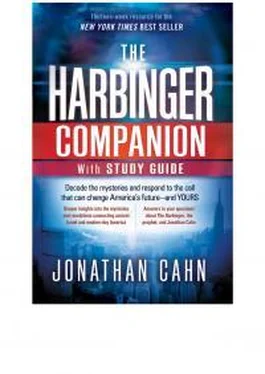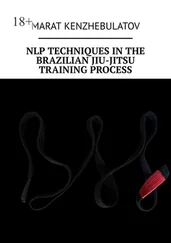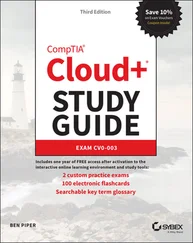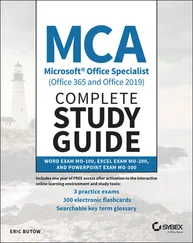Therefore, the LORD shall set up
The adversaries of Rezin against him,
And spur his enemies on.
In other words, the vow leads to a progressive manifestation of national calamity and judgment. The historical context for Isaiah 9:10–11 may be summed up as follows: Despite being blessed by God with decades of unparalleled peace and prosperity, the northern kingdom had refused to turn from its worship of the foreign gods of its neighbors and its embrace of their sinful practices. By the middle 700s BC, Assyria’s meteoric rise to the north was itself a warning, a sign of the unmistakable end of an era. Yet even after the Assyrians breached Israel’s defenses, Israel responded not with repentance but with vows to rebuild bigger and better than ever, and it began converting those vows into action. As the rebuilding accelerated, so did the nation’s trust in its own strength.
Meanwhile, both before and after the Assyrian breach, Israel turned to foreign powers, from King Pekah’s alliance with Syria’s king, Rezin, to King Hoshea’s entreaties to So, the king of Egypt. Both moves were meant to strengthen Israel’s hand against Assyria. But Pekah’s alliance with Rezin led to their invasion of Judah, which called on Assyria for help, provoking Assyria’s invasion of the northern kingdom in 732 BC. And Hoshea’s attempted conspiracy against Assyria led to Assyria’s taking Hoshea captive and to the final destruction of the northern kingdom a decade later.
The Isaiah 9:10 Effect
At play is a paradoxical or ironic dynamic that may be called the Isaiah 9/10 Effect: the attempt of a nation to defy the course of its judgment, apart from repentance, will instead set in motion a chain of events to bring about the very calamity it sought to avert.
Israel’s very attempts to defend against the threat posed by Assyria, undertaken without any repentance, without any return to God or altering of its national course, would ultimately lead to national destruction. All that it had done in the years after the initial Assyrian invasion (732 BC) to build itself up in power and defense would come crashing down in 722 BC like a house of cards. The nation’s attempt to defy God’s chastening judgments would end up triggering the very calamity the nation had sought to avert.
What was true of ancient Israel is true of America. As with Israel, in the years after 9/11 America took action on its vow to rebuild and become stronger and securer than ever. Besides its efforts at Ground Zero and across lower Manhattan, it established a new Department of Homeland Security and launched a global war on terror as well as wars in Iraq and Afghanistan.
But as was the case with Israel, America’s attempts to rebuild floundered without dealing with its spiritual and moral descent. As Isaiah 9:10 became America’s post-9/11 domestic and foreign policy, the Isaiah 9/10 Effect was set into motion.
The attempts to strengthen America’s national security and defenses required tremendous expenditures. The War on Terror and military campaigns in Afghanistan and Iraq would add hundreds of billions of dollars to the budget. The war in Iraq would impel a surge in oil prices. All of this spending led to the skyrocketing national debt.
Six Days After:
We Will Rebuild
In addition, six days after the 9/11 attack in an attempt to stave off a potential post-9/11 economic debacle, the Federal Reserve began the first of a series of historic interest-rate reductions that would force the rate below that of inflation. This was the equivalent of creating free money.
These moves led to a chain of economic events that ironically led to the calamity they were attempting to avoid. Rock-bottom interest rates meant easy loans, borrowing, and mortgages. Easier mortgages created an unprecedented housing and building boom. As the value of their houses inflated, homeowners borrowed and spent against them, creating credit bubbles across the economy. Massive inflows from Asia compounded the problem. The stock market surged. Meanwhile, central banks across the globe slashed their interest rates repeatedly, with similar results to America’s.
Since the economic boom was linked to Isaiah 9:10 and America’s attempt to beat back the effects of 9/11, the Isaiah 9:10 Effect kicked in, and the nation’s “resurgence” turned out to be a hollow illusion. It all collapsed.
The credit explosion led to a debt explosion. Standard cautions and restraints involved in borrowing and lending were thrown away. Personal, government, and corporate debt skyrocketed. Investment and banking firms engaged in increasingly risky practices.
The House of Cards Collapses
In September 2008, seven years after the 9/11 attacks, America’s financial system began to implode, resulting in the greatest economic disaster since the Great Depression. As the house of cards began collapsing in America, it affected the world.
The connection between 9/11 and the economic implosion was clear:
We can trace the roots of the crisis back to the 9/11 terror attacks . . . [Greenspan] kept on cutting the interest rates after September 11 . . . 1
The financial house of cards was slowly built following the 9/11 attacks . . . 2
In other words, behind the collapse of the American economy, the crash of Wall Street, and the Great Recession lies an ancient principle of national judgment, the Isaiah 9:10 Effect. And its meaning for the future is that if America does not return to God, does not turn her course toward repentance, her problem will never be solved by any other means—economic, political, military, or any other means. The shaking of the nation will continue.
WEEK 6 EXPLORE and APPLY
Read chapters 14 and 15 of The Harbinger .
Watch or listen to the accompanying resource The Isaiah 9:10 Effect DVD or CD from The Harbinger: The Full Revelation eight-disc album.
Read Isaiah 9:11–18.
Explore
What scriptural examples of people who sought to solve spiritual problems by using nonspiritual solutions can you think of?
What exactly was the northern kingdom of Israel embarking on as proclaimed in the vow? Was it just about stones and trees?
How do you think they sought to strengthen themselves, particularly in these realms:
• Rebuilding the nation
• Walls of defense
• Strategic alliances
• Their military
• Trusting in other gods
Do you think that for a time Israel may have had the appearance of national resurgence?
How did the “spirit of defiance,” the same spirit that led them to make the vow, ultimately lead to their destruction?
What was God’s answer in Isaiah 9:11 to ancient Israel’s vow of defiance in Isaiah 9:10?
What is the Isaiah 9:10 Effect?
Why is it that Israel could not solve its problems militarily, economically, or strategically?
How is it like a man who tries to kill a weed by cutting of its stem?
After 9/11 American leaders not only vowed the same vow as ancient Israel but also set forth national policy in the same direction as that of ancient Israel. See if you can identify modern equivalents to what ancient Israel did in what America did after 9/11:
• Rebuilding the nation
• Walls of defense
• Strategic alliances
• Their military
• Trusting in other gods (or powers or things)
What were the unintended consequences of this general campaign to undo the effects of 9/11 without returning to God?
How did the economic collapse of America begin with 9/11 and the nation’s “Isaiah 9:10 reaction” to it?
What does the Isaiah 9:10 Effect and the example of ancient Israel signify for America if the nation does not return to God?
Читать дальше












